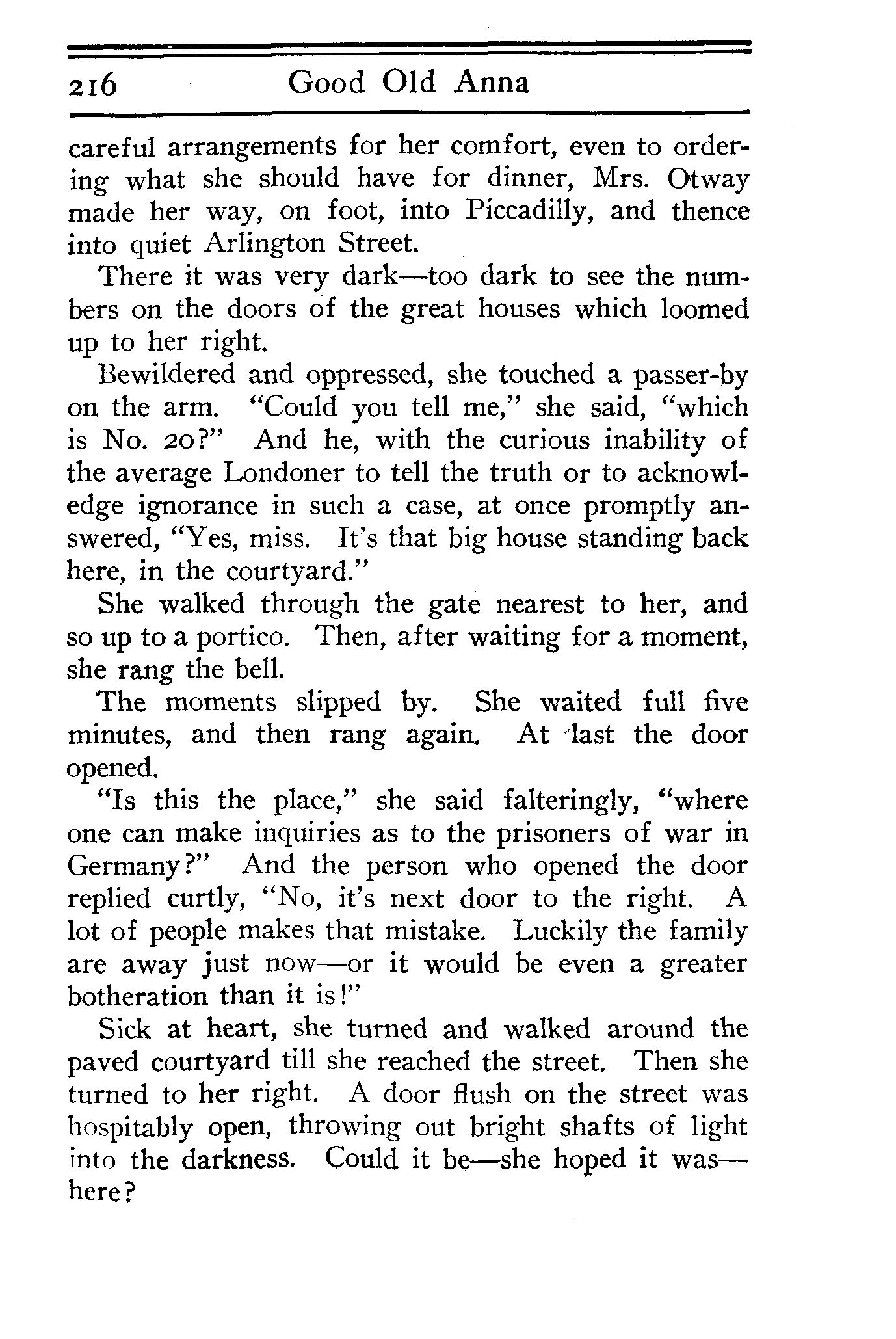 p215 _
-chap- _
toc-1 _
p216w _
toc-2 _
+chap+ _
p217
p215 _
-chap- _
toc-1 _
p216w _
toc-2 _
+chap+ _
p217
careful arrangements for her comfort, even to ordering
what she should have for dinner, Mrs. Otway
made her way, on foot, into Piccadilly, and thence
into quiet Arlington Street.
There it was very dark -- too dark to see the numbers
on the doors of the great houses which loomed up to
her right.
Bewildered and oppressed, she touched a passer-by
on the arm. "Could you tell me," she said, "which
is No. 20?" And he, with the curious inability of
the average Londoner to tell the truth or to acknowledge
ignorance in such a case, at once promptly answered,
"Yes, miss. It's that big house standing back
here, in the courtyard."
She walked through the gate nearest to her, and
so up to a portico. Then, after waiting for a moment,
she rang the bell.
The moments slipped by. She waited full five
minutes, and then rang again. At last the door
opened.
"Is this the place," she said falteringly, "where
one can make inquiries as to the prisoners of war in
Germany?" And the person who opened the door
replied curtly, "No, it's next door to the right. A
lot of people make that mistake. Luckily the family
are away just now -- or it would be even a greater
botheration than it is!"
Sick at heart, she turned and walked around the
paved courtyard till she reached the street. Then she
turned to her right. A door flush on the street was
hospitably open, throwing out bright shafts of light
into the darkness. Could it be -- she hoped it was --
here?
[[216]]
p215 _
-chap- _
toc-1 _
p216w _
toc-2 _
+chap+ _
p217